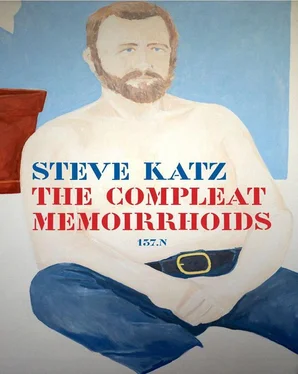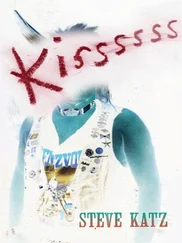On the next day they walk us in to one of Somoza’s coffee plantations. The Sandinista government has appropriated all the former dictator’s property. We shamble around and listen to a talk about the coffee tree, and are encouraged to taste one of the red berries. It is surprisingly sweet. “Not what you thought,” says the guide. “Not bitter, like coffee.” We gaze idly into the neat plantation, and over the hill blanketed with the red berry, under a sky sapphire blue, dappled with clouds. It was a “what a great day” kind of a day. An attractive young woman in khaki steps suddenly out of the darkness among the trees. “Ahhh! Here’s Maria,” says the guide as if he is surprised to see her. “Perhaps we can get her to tell us what happened to her brother.” “Viva la borghesia!” exclaims Herman Gauggel under his breath. He is a scholar of Central American poetry, a Honduran expert, who punctuates all conversations with this exclamation, irritating everyone. The woman starts to tell us about her brother who was taken by the Contras. He was tied to a tree for three days. Tarn rolls his eyes and walks away. He was castrated, she goes on, his genitals crammed into his mouth while he was still alive. I watch her as if hypnotized. I will listen to and watch a beautiful woman as she tells any story. They gouged his eyes out one at a time, cut off his fingers, eviscerated him as he passed out. She knows it in such detail you’d think she might have witnessed.
On the next day, they pack us onto a bus for Leon, the home and shrine of Ruben Dario. We ride along the shore of Lake Managua and can see across the water to the cones of the volcanoes Monotombo and Masaya. “Somoza took those who displeased him, his opposition, for helicopter rides over the volcanoes, and pushed them out alive, into the caldera.” “…viva la borghesia,” exclaims Herman. The town seems empty. We visit Dario’s shrine, his grave, his house. We take refreshment at a vacant coffee house.
It’s a day without propaganda. Everyone is exhausted, listless, happy to stare at nothing. No such luck. On the way back we are hustled to a camp outside Managua to listen to a poetry reading by Ernesto Cardenal, a principal Sandinista poet. The reading is crowded under a canopy, many Sandinista poetry fans have come to listen to the poet. Cardenal admits he owes a lot to Allen Ginsberg, his poems broad and rambling.
On the last night they organize a poetry reading in the reception hall of our Somoza estate. Poets come from all over Nicaragua. We alternate one Spanish, one English. Cardenal reads again, and a well known dentist poet, whose name eludes me. Many women show up — Daisy Zamora, Claribel Alegria, Gioconda Belli — all reading poems of loss and grief. Women lose husbands, brothers, sons. The evening is light-hearted and friendly nonetheless, one great blithesome parting sob.
In bed I have a lucid dream that puts me back in the same room with the same poets. In front of me sits a young boy of twelve or so. He turns to look at me. Although he resembles none of my sons in particular, he does look like family. Just before we separated, Jingle had an abortion. She was sure the pregnancy was my doing. We couldn’t imagine having another kid. We’d raised three, and they were in good shape. Now we were splitting up. Neither of us was in the parenting mode. This time we would have ruined any kid; besides, we couldn’t imagine raising just one. It would be a sorry child without brother or sister ally growing close to it, to defend themselves against grown-ups. Hence, an abortion. Jingle took the procedure in New York City, where I was living. I put her on the bus back to Pine Bush. It was very hard on her, and on me as well, though not so obvious. This boy in my dream is the right age. In this context, in this country of loss, he is a manifestation of my loss. “From now on,” I say to him. “You can call me father.” I feel his radiant, angelic smile. “That’s the most beautiful thing I have ever heard,” says my dream son.
We have to fly out by Nicaraguan airline, and change in Guatemala City. Even though Nicaragua is a Diner’s Club Country, Sandinista planes are not allowed to fly into US air space. One of the engines of this old DC8 starts to fail, to spark and stall out. We have to put down at the daunting Toncontin airport in Tegucigalpa for repairs. Herman panics. For political reasons he is not welcome back in his native Honduras, and could be arrested. We are confined to the transfer lounge, where he helps me pick out some good cigars before he hides in a corner. The mechanics, who all look about twelve years old, run out like a bunch of elves in a circus, and bang on the ailing engine with hammers and wrenches. They then exit stage left, after seeming not to have done anything but make noise. We reembark and with fingers crossed continue on to Guatemala City.
It’s strange after being aswim in the propaganda and culture of the Sandinistas to have to accept that once the Nicaraguans are allowed to vote they put Daniel Ortega out of office. I feel somehow betrayed. By the Sandinistas? By the Nicaraguan electorate? By the mothers and poets of Nicaragua? By Nathaniel Tarn? By Herman Gauggel? By myself? There can be no self without betrayal.
JFK assassinated, yowza yowza. Back from Italy into the US of A. Me to teach creative writing in political ferment of Cornell University. Yowza. University seems a place where you can get educated at that time, without being torqued into the shape that suits military-industrial complex. Doug Dowd organizes students to register black voters in Fayette County, Alabama. Yowza. James Chaney, Andrew Goodman, Michael Schwerner, civil rights activists, one black, two white, murdered in Mississippi. Yowza yowza. Vietnam war escalates in massacre, stupidity, lies and deceit. Yowza. Protests, teach-ins, marches, vigils, demonstrations in Washington. Yowza. Katz does performances. Reading in combat drag, rising from behind the podium, burning candle on his helmet, reading to end the war in Vietnam. Yowza and yowza.
Here is Malcolm Cowley, visiting professor, avuncular man of letters. He reads my Kulik in Puglia, rhapsodic homage to the meridionale, southern Italy. This is the best editorial experience I will ever have, like a leisurely stroll through my own neighborhood with an intelligent and thoughtful friend from elsewhere. He takes the manuscript with him to Viking to recommend its publication. Wow yowza. Literary veteran. Elegant man of letters.
Gulf of Tonkin swindle. Yowza. The draft revived. More troops to Vietnam. Yowza yowza. Many potential inductees flee to Canada so as not to fight yowza in criminal war. That was a US perpetrated slaughter. Families, women and children, villages incinerated. Yowza. What then has the US become? Protecting what? Nothing. And this was only a sinister shade of what we become in Iraq. Yowza. Napalm roasts Vietnamese flesh. Lyndon Johnson alas corrupted; his populist fork plunged into the flesh of Vietnam people. American kids skewered and dying for the lies of the self-righteous and comfortable. If Viking had published my straightforward narrative, Kulik in Puglia, I might never have had to struggle in the straitjacket of the postmodernist label. It reeks of academia, trivializes and stereotypes, a convenience for lazy academics that need to operate out of pigeonholes. O yowza. My Lai murders. Kissinger deceit. Yowza yowza.
University job gave me time to write The Exaggerations Of Peter Prince . Story vibrates beyond realism into grotesques and fantasies and oblique narrative strategies. I use some of what I initiated in 1961, (later to be imported by North American publishers from South America as a genre called “Magic Realism”) in my self-published novella, The Eestriad . Scorch the boundaries of narrative. Use this tool to expose the structure of lies foisted on consciousness. Yowyowza. What I tried, crudely maybe, was to tell the story at the same time as I encouraged a surface of the page that constantly revealed the book as artifact. Yowzayow. I couldn’t let the page appear only as a window on illusionary space. I wanted no system of telling where the page itself disappears into a semblance of reality. I made pages and sequences that have graphic interest, visual signals that float on the surface, so the page itself is always present to play against illusionistic narrative. The self-referential chords I struck enhance that effect. This “experiment” was necessary since we were obliged to play on the public field of mendacity, to encourage any reader who would to examine critically how any story is told. Yowza. Bombing with surgical precision. Yowza yowza and yowza again. And Bobby Kennedy assassinated. And Agent Orange broadcast sprayed across the green yowza no health effects on hither or yon yowzawhoa. And Malcolm X goodbye. Then Martin Luther King. A yowza a yowza. And for another approach my limited understanding of the implications of quantum mechanics, in metaphor, not math, that the position and nature of the observer, the instruments of observation, influence the results of observation. In my fiction I needed to constantly re-examine the separation of subject and object. I wanted to make an art that exposes its own process as it engages its reality and doesn’t lose its read. Exaggerate! Extenuate!
Читать дальше












